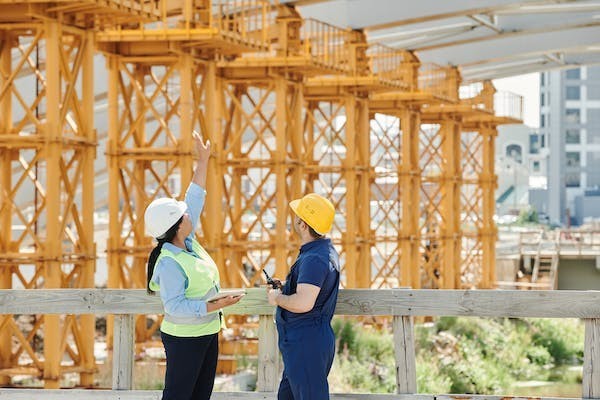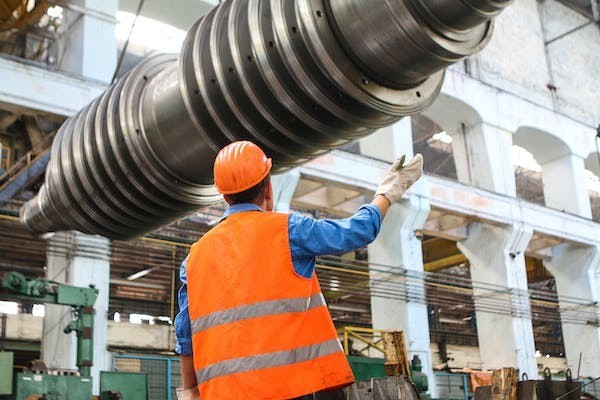views
The construction industry, as we approach 2024, stands at a pivotal juncture, poised for significant change. The combination of rapid technological advancement, shifting demographics, and an ever-increasing emphasis on environmental sustainability makes it essential to closely examine the emerging trends that are set to redefine the construction landscape. So, here are some of the most important trends that promise to reshape the construction sector in the forthcoming year.

Digital Transformation
The dawn of 2024 ushers in a new era in the construction industry, characterized by a remarkable digital transformation. Key drivers behind this transformation include the widespread adoption of Building Information Modeling (BIM), the integration of artificial intelligence (AI) in project management and decision-making, and the growing utilization of augmented reality (AR) for design and project visualization. These digital tools are revolutionizing construction processes by providing real-time data, enhancing communication, and streamlining project management. This trend is not only about staying up-to-date but is increasingly becoming a defining factor for the competitiveness and success of construction businesses.
Sustainable Practices
Environmental sustainability is no longer just a buzzword but a guiding principle in construction. As we step into 2024, the industry continues its unwavering commitment to reducing its ecological footprint. This commitment is evident in the growing emphasis on using green building materials, designs that prioritize energy efficiency, and the incorporation of renewable energy sources in construction projects. The integration of sustainability practices not only aligns with environmental responsibilities but also translates into long-term cost savings, improved reputation, and regulatory compliance.

Modular Construction
The year 2024 is set to witness a substantial increase in the adoption of modular construction methods. This approach, which involves the assembly of pre-fabricated building components at the construction site, offers numerous benefits. It drastically reduces project timelines, provides cost savings, and allows for increased flexibility in design. These advantages make modular construction especially relevant for residential and commercial projects, where speed and efficiency are paramount.
Remote Collaboration
The global pandemic has left an indelible mark on various industries, including construction. In 2024, the industry will continue to embrace the trend of remote work and virtual collaboration. This shift involves the extensive use of digital tools and platforms for remote project management, communication, and design collaboration. Such remote collaboration ensures seamless communication and project progress, irrespective of geographical boundaries. Moreover, it enhances safety by reducing the need for physical presence on construction sites.

Supply Chain Resilience
The construction industry, like many others, has faced supply chain disruptions in recent years. As we enter 2024, a key trend will be the establishment of resilient supply chains. This involves diversifying sourcing, employing advanced inventory management systems, and leveraging digital solutions for tracking and managing construction materials. This is particularly true when talking about processes like professional stainless steel polishing that can turn out to be a crucial part of different construction projects. The aim is to minimize the impact of disruptions and ensure a consistent flow of materials, which is critical for project timelines and cost control.
Advanced Robotics
Robotics and automation are rapidly making their presence felt on construction sites. Drones, autonomous vehicles, and even robotic construction workers are becoming integral parts of construction projects. In 2024, this trend is set to grow further, optimizing tasks that were traditionally labor-intensive and time-consuming. Drones can be used for surveying and monitoring, autonomous vehicles for material transportation, and robotic workers for repetitive and physically demanding tasks. The integration of advanced robotics improves safety, reduces labor costs, and enhances project efficiency.

Urbanization and Infrastructure Growth
The relentless trend of urbanization continues to draw people to urban areas in search of opportunities and better living standards. In 2024, we can expect to see increased investments in urban infrastructure development. This will encompass the expansion and improvement of roads, bridges, public transport systems, and utility networks to cater to the growing urban population. The construction industry will play a pivotal role in shaping these urban landscapes to make them more efficient, sustainable, and resilient.
The construction industry is at the cusp of a transformative phase as we enter 2024. These trends mentioned here are set to redefine the industry in profound ways. Staying ahead of these trends is not merely an option but a necessity for businesses and professionals within the construction sector. Their successful adaptation to these evolving dynamics will not only ensure their competitiveness but also contribute to more sustainable and efficient construction practices.






















Comments
0 comment